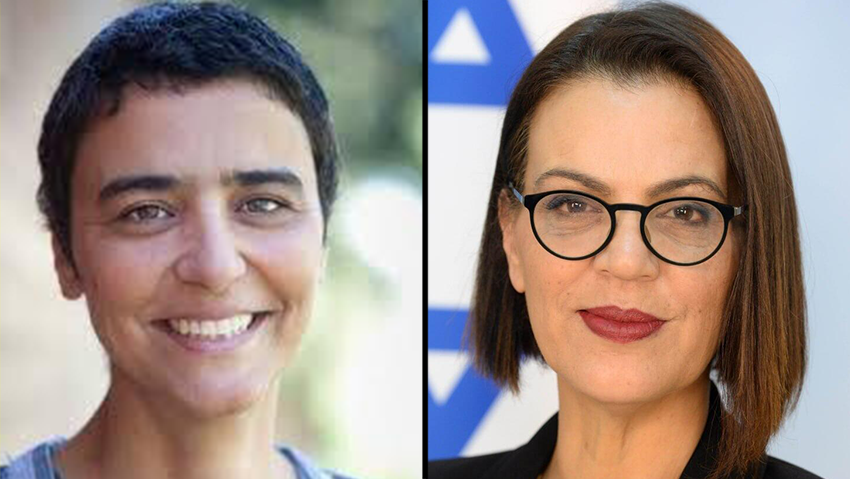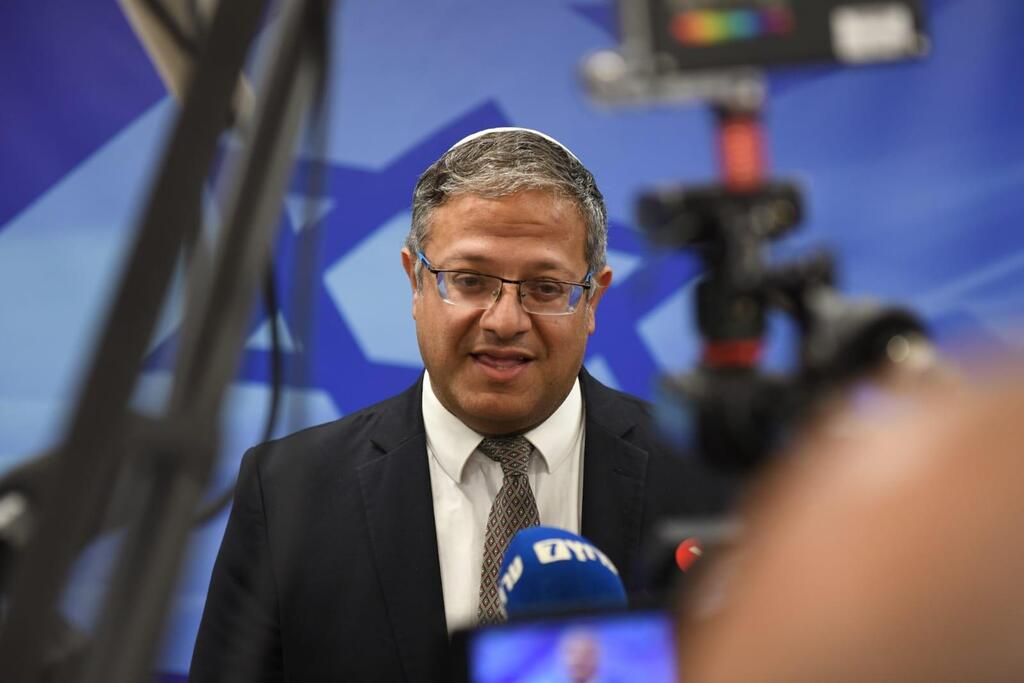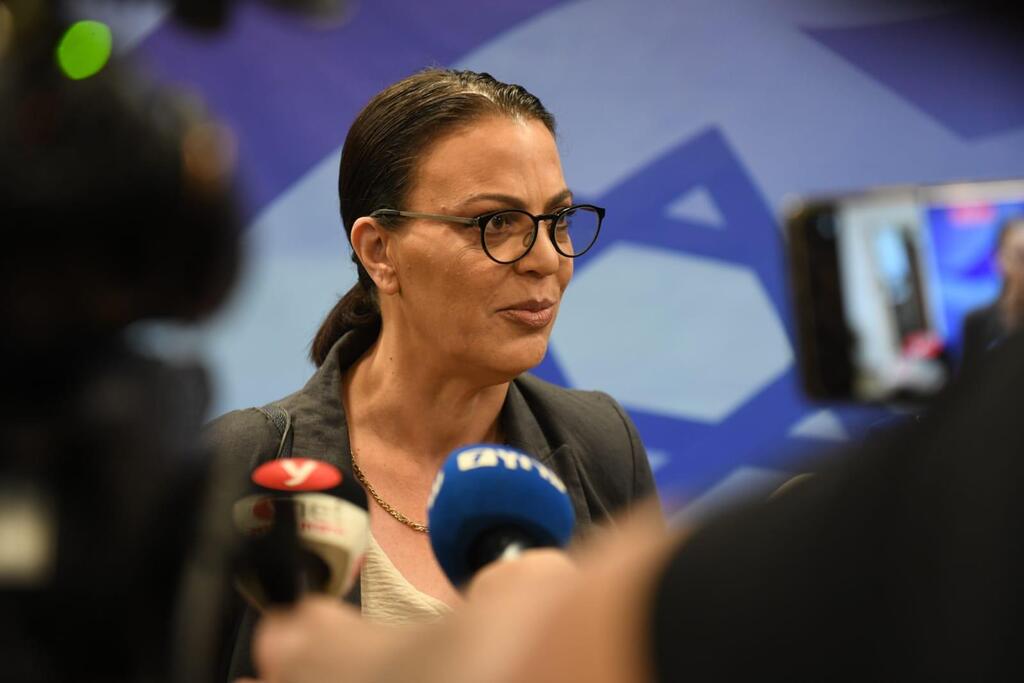Public Diplomacy Minister Galit Distal Atbaryan Sunday evening informed Dr. Gali Sambira, the director-general of her ministry, that she will be relieved of her post due to "dissatisfaction with her professional performance."
Read more:
Distal reportedly has a new candidate lined up for the role and plans to announce their identity in the coming days.
4 View gallery


Outgoing Public Diplomacy Ministry Director-General Dr. Gali Sambira and Public Diplomacy Minister Galit Distal Atbaryan
(Photo: Mark Neuman/GPO, Shitufim)
Sambira’s dismissal comes amid one of the biggest public diplomacy crises the current government has faced following a controversial comment by National Security Minister Itamar Ben-Gvir, who argued that "the right for me, my wife and my children to move freely in the West Bank takes precedence over the movement rights of Arabs."
Since appointing Sambira to the role four months ago, Minister Distal has faced criticism from Likud activists who claimed that she had appointed a leftist.
Sambira's explanations and professional qualifications did not help the situation, and tensions between the two grew. Sources close to the minister told Ynet that Distal was not satisfied with Sambira's performance, claiming that she "did not deliver and failed to establish the ministry properly." Therefore, Distal has started to secretly interview new candidates for the job.
The government approved Dr. Sambira’s appointment as the director-general of the Public Diplomacy Ministry in early May, despite criticism of her leftist politics. This came after Minister Distal Atbaryan insisted on moving forward with the appointment. On the face of it, the appointment was particularly surprising: Sambira is known as a supporter of the two-state solution and has spoken out against the judicial overhaul.
Two months before Sambira’s appointment, Distal had intended to appoint Sharon Uziel Peled for the role, and her appointment was even approved by the civil service appointment committee. However, it was withdrawn for reasons that are unclear.
In her new submission to the committee regarding Sambira's appointment, Distal wrote, "The candidate is an excellent organizational woman and, at the same time, a spirited individual whose social and sociological insights impressed me from the very first moment. She is among the rare talents who manage to be liked on both sides of the political spectrum."
The minister further claimed that "Dr. Sambira is highly skilled at managing her subordinates. She has excelled in leading a team of loyal and diligent workers wherever she has worked."
She added that, given the challenges faced by the ministry at this time, she is convinced that the candidate "is the right person in the right place, and I am certain that she will make a significant contribution to the Public Diplomacy Ministry, which is in the process of being established."
Sambira, 51, holds a doctorate in Gender Studies, and is a socially active feminist, traditionalist and lesbian. During her military service, she served as a communications officer.
Over the years, she has led and managed a range of governmental and non-governmental projects in the fields of society, education and the third sector. She was among the founders of the Shaharit Institute for the Advancement of Shared Common Good and served as the CEO of the Yitzhak Navon Association.
She supports a two-state solution, and in a post she published last February, she wrote, "We are in favor of two states (is that option still available?) when there is someone to talk to, but it seems that it's not high enough on our agenda. Maybe instead of a new Middle East, we need both Islam and Judaism to be a little more like Morocco here.”
In that same post, she also made veiled remarks against Prime Minister Benjamin Netanyahu and Shas Chairman Aryeh Deri, as well as against the opposition. Among other things, she wrote, "We don't want a prime minister suspected of criminal activity or ministers with indictments, but we also don't want a regime led by a single group that thinks it knows what's best for everyone and claims to be the sole embodiment of democracy and statesmanship while the rest are just rabble.”
In another post she published, she expressed concern about the government’s legal plan, saying that it is overly exaggerated and "could take us to dangerous places where human rights in Israel will be undermined. However, I understand that changes in the system must be made and there's no choice but to advance them.
We want reform in the judicial system because it's clear that someone there has gotten confused about the use of power. Obviously, dismantling power requires even more power, but if you could just take a moment to listen to some more nuanced and deep voices and stop threatening us with a civil war."





